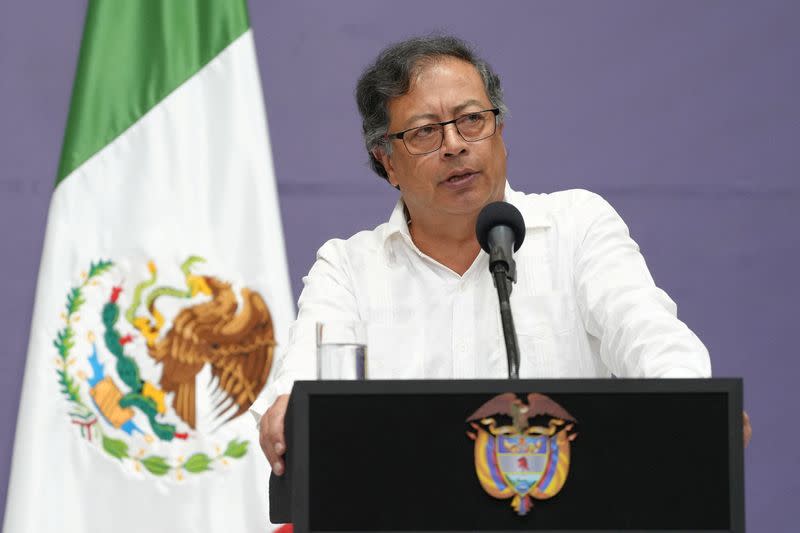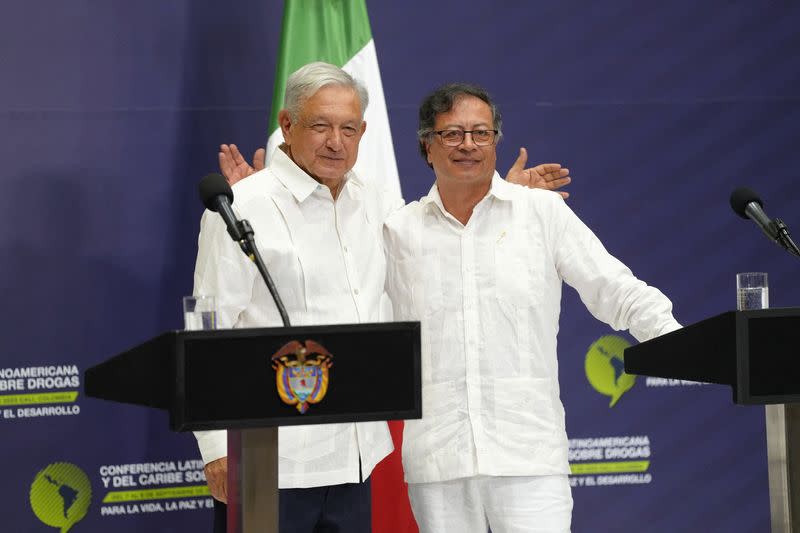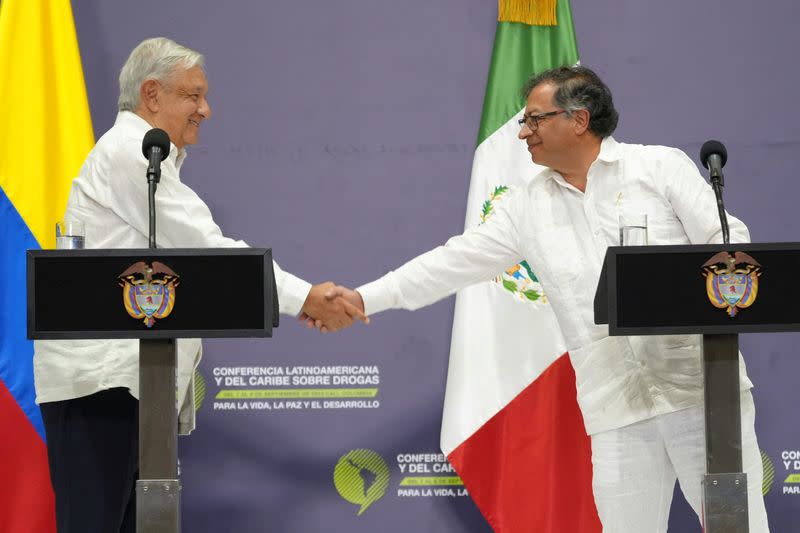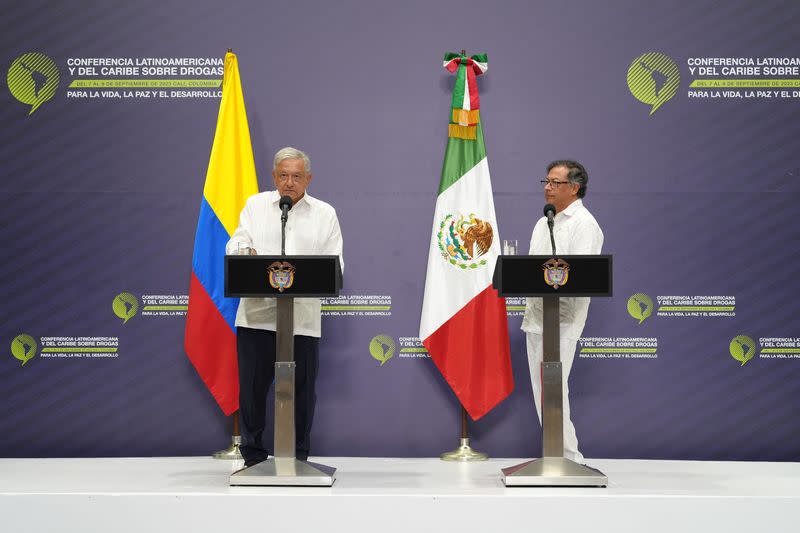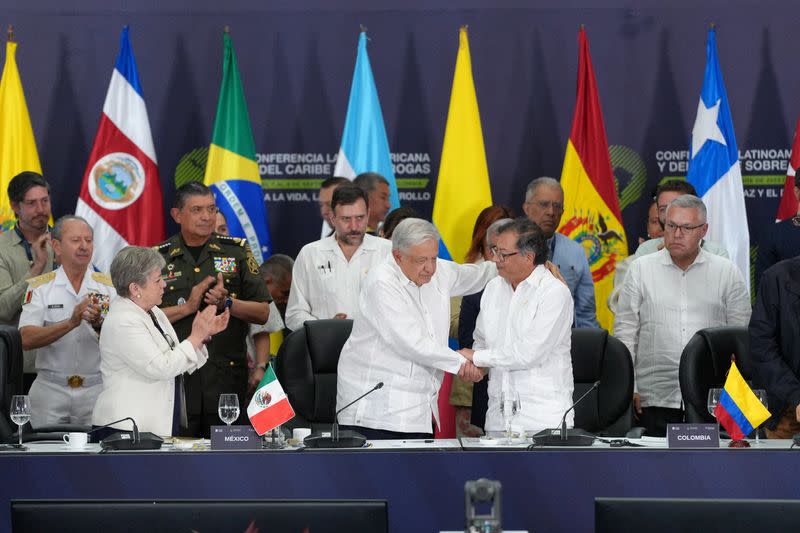Colombian President proposes Latin American alliance to transform 'war on drugs'
BOGOTA (Reuters) - Colombian President Gustavo Petro proposed on Saturday an alliance between Latin American countries to bring a unified voice to the fight against drug trafficking, by recognizing drug consumption as a public health problem instead of confronting it with what he called a "failed" militarized approach.
Petro, the first leftist president in Colombia's history, closed the Latin American and Caribbean Conference on Drugs, which was held in the city of Cali, by saying that 50 years of a failed war on drugs had resulted in immeasurable bloodshed and pain in Latin America.
"What I propose is to have a different and unified voice that defends our society, our future and our history and stops repeating a failed discourse," said the Colombian president.
"It is time to rebuild hope and not repeat the bloody and ferocious wars, the ill-named 'war on drugs', viewing drugs as a military problem and not as a health problem for society," Petro said.
Colombia, like other Latin American countries, faces persistent violence resulting from drug trafficking and the presence of cartels with growing firepower and economic might, according to security sources and analysts.
The countries participating in the conference said in a joint statement that demand for illicit drugs must be reduced by educating the public and combating inequality, poverty, lack of opportunities and violence.
They also agreed on the need to break the harmful links between drug and firearms trafficking, transnational organized crime, illegal logging, human trafficking, migrant smuggling, money laundering and corruption.
Mexican President Andres Manuel Lopez Obrador, who attended the event, said countries must strengthen family unity with love, combat poverty, and encourage the planting of corn, beans, cocoa, coffee, fruits and timber to reduce land area dedicated to illicit crops like marijuana, as well as opium poppy and coca leaf - the raw materials for drugs such as heroin and cocaine.
The Mexican president said Latin American countries need to support the United States in its fight against fentanyl out of a "moral obligation" and "humanism."
"They are facing a pandemic," Lopez Obrador said. "Regardless of our differences, above partisan ideas and ideological positions are human rights and the main human right is the right to life."
(Reporting by Luis Jaime Acosta in Bogota and Raul Cortes in Mexico City; Writing by Jackie Botts; Editing by Chizu Nomiyama)

